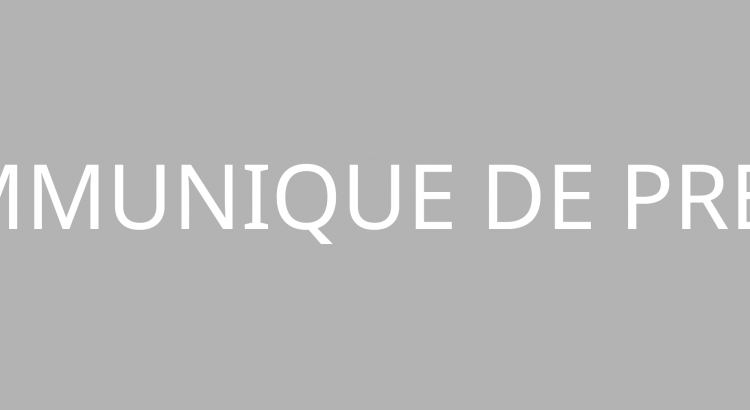Né en URSS, Sergueï Pougatchev se consacre après l’éclatement de l’empire soviétique à attirer les investissements en Russie. Au début des années 1990 il s’installe en France avec sa famille.
Il est le fondateur de la première banque privée de Leningrad et fondateur de l’une des plus grandes sociétés privées d’investissement en Russie: la Corporation industrielle unifiée (“OPK”).
Dans les années 1990 il fait partie du cercle rapproché du premier président russe Boris Eltsine, dont il dirige en 1996 l’équipe de campagne électorale.
En 1999 il propose à Boris Eltsine de nommer au poste de Premier ministre un certain Vladimir Poutine, alors inconnu du grand public. C’est aussi Pougatchev qui dirige la campagne de Vladimir Poutine lors des élections présidentielles en 2000.
Après la victoire de Vladimir Poutine aux élections, Sergueï Pougatchev demeure longtemps son conseiller principal, tout en continuant de se consacrer aux activités d’investissement.
Il poursuit également son engagement en politique, où il prône une approche ultra-libérale de l’économie et de l’organisation sociale de l’Etat russe; il est sénateur de 2001 à 2011.
C’est lui qui propose à Vladimir Poutine de réformer l’Union des chefs d’entreprise et industriels de Russie (dont il assure la vice-présidence à partir de 2000), afin d’assurer un dialogue entre le Président et les plus grandes entreprises russes privées. Il organise les premières rencontres officielles entre le président Poutine et les oligarques russes: c’est à l’issue de l’une d’entre-elles qu’un conflit survient entre Vladimir Poutine et Mikhaïl Khodorkovsky (IOUKOS).
En 2011, à la suite de différends politiques accrus avec Vladimir Poutine, Sergueï Pougatchev est contraint d’abandonner tous les postes à responsabilité publique et décide de liquider l’intégralité de ses actifs russes.
Sergueï Pougatchev avait commencé à investir dans l’économie russe dès le début des années 1990. Ainsi, en 2010 il se retrouve l’unique propriétaire de la société d’investissement Corporation industrielle unifiée (“OPK”) dont les actifs s’élèvent à 15 milliards de dollars américains.
Sergueï Pougatchev avait, de fait, ressuscité l’industrie navale russe, notamment en construisant un méga-chantier naval à Saint-Pétersbourg, intégrant des dizaines d’entreprises de construction navale et mécanique de haute technologie. Ses chantiers construisent des navires civils et militaires, parmi lesquels: des navires à certification glace permettant l’exploration de gisements arctiques et offshore, des navires militaires pour l’Inde et la Chine, des navires de réapprovisionnement pour la Norvège, le plus grand brise-glace au monde, la première centrale nucléaire flottante au monde. Pour la première fois depuis l’époque soviétique (depuis les années 1970) ces chantiers permettent de relancer une production industrielle de brise-glaces.
C’est aussi à l’initiative de Sergueï Pougatchev que ses chantiers entreprennent de construire les porte-hélicoptères français de la classe “Mistral”. On envisage alors de construire vingt navires de cette classe.
En 2010, sous la pression de Vladimir Poutine, Sergueï Pougatchev se voit contraint de céder à l’Etat l’intégralité de sa participation dans les chantiers navals, à un prix notoirement inférieur au marché. A l’époque, les actifs de Pougatchev sont évalués, selon différentes estimations, à environ 7 milliards de dollars.
Mais l’Etat russe manque aux obligations stipulées dans le contrat et exproprie les actifs sans contre-partie.
Par la suite Vladimir Poutine confie la gestion de la corporation à son proche collaborateur, le vice-premier ministre Igor Setchine (celui-là même qui avait, quelque temps auparavant, organisé l’expropriation de IOUKOS).
L’autre principal volet des activités d’investissement de Sergueï Pougatchev en Fédération de Russie est la promotion immobilière (acquisition de terrains, construction immobilière haut-de-gamme au centre et dans les environs de Moscou, ainsi que dans le centre de Saint-Pétersbourg). Pour mener à bien ces projets, Sergueï Pougatchev investit plusieurs milliards de dollars dans l’achat de terrains.
Un hôtel donnant directement sur la Place Rouge à Moscou, d’une surface totale de 76,000 m2, est appelé à devenir le joyau central de cette couronne d’immobilier de luxe en Russie. Le projet est confié à l’architecte français Jean-Michel Wilmotte. C’est le Président Poutine qui demande personnellement à Sergueï Pougatchev d’entreprendre la construction de ce palace 5-étoiles sur la Place Rouge, en face du Kremlin. Mais plus tard, ce projet a été exproprié par ordre du président de la Russie.
Dans le centre historique de Saint-Pétersbourg, à quelque cinq minutes du Palais de l’Ermitage, 70 hectares de terrain sont acquis au bord de la Néva, dans le cadre d’un projet d’immobilier résidentiel de luxe, prévoyant une surface habitable de plus de 4 millions de m2.
Afin de libérer les terrains nécessaires à la construction, Pougatchev fait déplacer les ateliers de construction depuis le territoire du chantier naval Baltyisky vers le nouveau mega-chantier qu’il fait construire dans la banlieue de Pétersbourg, à l’emplacement des anciens chantiers historiques Poutilov. Le projet est suivi personnellement par le gouverneur de la ville de Saint-Pétersbourg, Valentina Matvienko (qui occupe actuellement le poste de Présidente du Parlement de la Fédération de Russie); elle donne l’approbation officielle au programme municipal de déplacement des chantiers industriels depuis le centre historique vers la périphérie de la ville. La projet est baptisé “La Nouvelle Venise”. Les pouvoirs municipaux construisent une station de métro à proximité immédiate de l’ancien emplacement des chantiers Baltyisky.
Pougatchev est par ailleurs le plus grand propriétaire de terrains dans une zone résidentielle unique en son genre, située dans les environs de Moscou sur les bords de la Moskova. C’est là qu’habitent les personnes les plus fortunées de Russie. C’est là aussi que se trouve la résidence du Président Poutine, Novo-Ogariovo.
Quand le conflit entre Pougatchev et Poutine éclate, tous ces projets sont annulés ou expropriés.
Dans les années 90, Sergueï Pougatchev avait investi des sommes conséquentes dans un projet d’exploration et d’exploitation subséquente de gisements de charbon en Sibérie orientale.
Vers le milieu des années 2000 il devient ainsi propriétaire du plus grand gisement de charbon à coke dans le monde, combustible largement utilisé en métallurgie.
Il entreprend alors de construire une voie ferrée longue de 402 km. Il s’agit du plus grand projet de construction ferroviaire depuis la construction du “BAM”, la voie ferrée Baïkal-Amour. Boris Gryzlov, président de “Russie Unie”, le parti au pouvoir, supervise officiellement le projet.
Pougatchev signe un accord d’investissement avec l’entreprise japonaise Mitsui, qui acquiert 49% de la Compagnie industrielle du Enissei (“EPK”), exploitant le gisement houiller. Mitsui participe au développement du projet.
En 2010 la capitalisation d’EPK se chiffre à 5 milliards de dollars.
A la fin de 2012, sur ordre personnel du président Poutine, la licence d’exploitation houillère accordée à EPK est illégalement retirée. L’entreprise est pillée et pratiquement anéantie. Près d’un milliard et demi de dollars, destinés à l’exploitation du gisement, disparaissent des comptes de la société.
Ainsi, la plus grande partie des actifs de Sergueï Pougatchev situés en Fédération de Russie sont expropriés au bénéfice de l’entourage proche de Vladimir Poutine.
Pougatchev tente d’attaquer en justice le gouvernement russe, et se retrouve pris pour de longues années dans des démêlés interminables devant les tribunaux russes. L’issue de ces litiges est évidemment tranchée d’avance: Poutine avait personnellement surveillé le processus d’expropriation et avait à plusieurs reprises averti Pougatchev, dans des déclarations publiques, des risques que ce dernier courait en continuant de lutter pour ses actifs.
Lorsque Pougatchev signifie à Poutine sa résolution de saisir la Cour internationale de La Haye, les pressions dont il est l’objet se multiplient. Plusieurs ex-dirigeants de ses sociétés sont condamnés illégalement et se retrouvent en prison.
De fausses accusations pénales sont montées contre Pougatchev, un mandat d’arrêt international est lancé par Interpol. Interpol finit pourtant par reconnaître que l’affaire est politiquement motivée et rejette in fine la demande russe.
A la demande expresse du président Poutine, l’Agence de garantie des dépôts est officiellement désignée comme représentant de la Fédération de Russie à l’internationale et intente de multiples procès à Pougatchev dans le monde entier, dans le but de détourner les ressources intellectuelles et financières de ce dernier du procès à La Haye.
Poutine ne s’en tient pas à l’anéantissement de l’empire économique de Sergueï Pougatchev en Russie. Il vise aussi ses avoirs à l’étranger, mettant à profit les liens entre la Fédération de Russie et d’autres Etats, les organisations, traités et accords internationaux, abusant du droit.
Notamment, en 2013, au titre de l’accord d’entraide judiciaire existant entre la Russie et la Suisse, la Russie obtient le gel des avoirs appartenant à Sergueï Pougatchev déposés dans les banques suisses. Les avoirs en question étant destinés au développement des actifs de Pougatchev situés à l’étranger, plusieurs entreprises lui appartenant font faillite (notamment OPK Biotech, société américaine de technologie de pointe, spécialisée dans la fabrication de sang artificiel à usage universel, ne nécessitant pas de régime de conservation spécial et convenant également à tous les groupes sanguins; la capitalisation d’OPK Biotech se chiffrait à 3,5 milliards de dollars; la société avait déposé plus de 600 brevets d’invention).
De même, ces démarches de l’Etat russe ont pour conséquence la faillite d’Hédiard, épicerie française de luxe fondée en 1854, appartenant également à Sergueï Pougatchev. Hédiard, membre du Comité Colbert au même titre que l’Opéra National de Paris, Chanel, Christian Dior ou Givenchy, avait 320 boutiques dans le monde et était reconnue patrimoine national français.
La société horlogère suisse, fabriquant les mouvements horlogers de la marque de montres “Poliot” pour le compte de Pougatchev, fait également faillite. Pougatchev est en effet le propriétaire de cette marque légendaire, l’un des symboles soviétiques connu dans le monde entier — au même titre que le théâtre Bolchoï, le caviar d’esturgeon ou les boîtes de Palekh — et dont le volume des ventes au temps de l’URSS rivalisait avec la marque Rolex.
L’Etat russe continue de poursuivre Sergeï Pugachev à ce jour, ne répugnant pas à user des pires méthodes, qui vont de poursuites illégales devant des tribunaux étrangers jusqu’à des tentatives d’assassinat. Plusieurs attentats ont ainsi été organisés depuis 2010. En 2015, la section antiterroriste de Scotland Yard SO15, trouve un engin explosif sous l’automobile de Sergueï Pougatchev. Ce n’est que grâce aux efforts conjoints des services spéciaux français et britanniques que l’attentat a été déjoué.
En 2013 Sergueï Pougatchev rencontre personnellement Vladimir Poutine, avec qui il discute d’une possibilité d’accord amiable entre les parties, moyennant le paiement d’une compensation par l’Etat russe pour les actifs expropriés.
Poutine accepte d’indemniser Pougatchev pour les dommages subis. C’est le début de longues négociations, où le président Poutine est représenté par un de ses proches, un général des services spéciaux russes.
Au bout d’un an et demi de négociations ardues, Vladimir Poutine lâche: “Qu’il aille en justice. S’il gagne, on paiera” (sic!).
Le 21 septembre 2015 Sergueï Pougatchev porte plainte contre la Fédération de Russie devant la Cour Internationale de La Haye, sur le fondement de l’Accord d’encouragement et de protection réciproques des investissements, signé entre la Russie et la France le 4 juillet 1989. Le montant de la plainte s’élève à 12 milliards de dollars américains.
En 2016 le Président de la Cour Internationale de La Haye annonce la composition du Tribunal arbitral, avec Eduardo Zuleta Jaramillo comme Président, et le Professeur Thomas Clay et Bernardo Cremades comme arbitres.
Le 10 novembre 2016 le Tribunal arbitral ordonne, aux fins de sécurité personnelle de Sergueï Pougatchev, de fixer Paris, et non La Haye, comme lieu d’audience.
La première audience publique du Tribunal arbitral se déroule le 13 février 2017 à Paris, en les locaux de la Chambre de Commerce Internationale (ICC).
La lutte de Pougatchev contre Poutine et l’Etat russe pour les actifs spoliés est un exemple unique de fortitude de la part d’un homme qui résiste, seul, face à un Etat entier.
Aux dires de Sergueï Pougatchev, cette résistance est devenue un travail quotidien, presque industriel. Mais il croit fermement en son business-model. Il gère des dizaines d’avocats dans le monde entier. Il remporte régulièrement des victoires contre l’Etat russe et cela l’encourage à poursuivre la lutte.
Au cours de ces années il a vécu la bassesse et l’ignominie, il a vu des proches, qu’il croyait dévoués, le trahir. L’Etat russe qui, dit-il, ne recule devant aucune abjection, a corrompu la mère de ses enfants mineurs. Alexandra Tolstoy-Miloslavsky, son ex-compagne et mère de ses enfants, s’est ainsi retrouvée entretenue par l’Etat russe et vit actuellement à Londres, dans un luxueux hôtel particulier du prestigieux quartier de Chelsea. En contrepartie elle était prête à fournir un faux témoignage dans l’affaire Pougatchev contre la Fédération de Russie. Elle a emmené leurs enfants hors de France et n’y est jamais retournée, privant Sergueï Pougatchev de tout lien avec ses fils et sa fille. Leurs enfants sont ainsi tenus en otage depuis 2016.
Pugachev ne cesse de répéter que dans ce procès il ne s’agit pas que de lui seul. Ce n’est ni une vengeance personnelle contre Vladimir Poutine, ni une tentative de s’enrichir et de retrouver sa vie d’avant. Il est convaincu qu’il s’agit d’un procès entre la Russie et la France et que la Russie doit s’acquitter de ses obligations internationales. Toutes les entreprises multinationales présentes en Russie suivent ce procès de près. Pougatchev estime que ce litige offre un champ privilégié pour l’action diplomatique du président français Emmanuel Macron, qui cherche à construire une relation avec le chef d’état autoritaire qu’est Vladimir Poutine.
Il s’agit d’une possibilité de plus offerte à la communauté internationale, de mettre fin à l’agression et à l’impunité de Poutine, que ce soit à l’égard de l’Ukraine ou d’autres territoires qu’il occupe, en le traduisant en justice devant la Cour Internationale de Justice de l’ONU à La Haye.
C’est une chance de plus de rappeler au monde la vigueur du droit international.
C’est aussi une chance unique pour le Président Macron de montrer aux citoyens de la République française que leur pays les protège, où qu’ils soient et dans quelque situation qu’ils se trouvent, et qu’il peuvent à juste titre se sentir fiers d’être citoyens français.
A la question de ce qu’il compte faire avec les 12 milliards de dollars qui lui seront versés par la Fédération de Russie, Sergueï Pougatchev répond qu’il destine la majeure partie de ces fonds à des projets caritatifs dans le domaine de l’éducation, des technologies médicales de pointe, et à des fondations d’aide aux enfants privés de leurs parents.
Le 17 mars 2017 la Fédération de Russie a demandé au Tribunal arbitral le secret des audiences dans l’affaire Pougatchev. Cette demande est contraire au Règlement de la Cour de La Haye, néanmoins, le Tribunal arbitral a ordonné la restriction partielle de la diffusion publique des informations liées à l’affaire.
Le 18 juin 2020, le Tribunal de La Haye a rendu une décision sur la base des audiences tenues en novembre dernier à Paris.
Le tribunal a reconnu que le statut de Sergueï Pougatchev, en tant que citoyen légal de la France lui permettait de se prévaloir de la protection des droits des investisseurs prévue par le Traité Bilatéral d’Investissement entre la France et la Russie, mais néanmoins, cette sentence n’a pas complètement satisfait Sergueï Pougatchev et le 2 Novembre 2020, ses avocats ont déposé un recours auprès du TRIBUNAL SUPERIOR DE JUSTICIA DE MADRID.
Étant donné que deux arbitres du panel du Tribunal ont refusé de se prononcer sur la partie concernant la demande au fond, les avocats de Sergueï Pougatchev estiment que la sentence du 18 juin 2020 est incomplète et devrait être modifiée.
Étant donné qu’aux termes de la procédure du Tribunal, la ville de Madrid a été désignée comme le lieu d’arbitrage, l’appel a été déposé auprès du tribunal Espagnol – TRIBUNAL SUPERIOR DE JUSTICIA DE MADRID.
Une date d’appel sera fixée sous peu.


